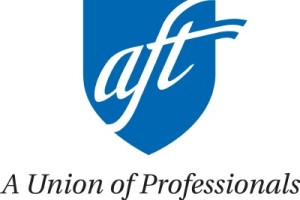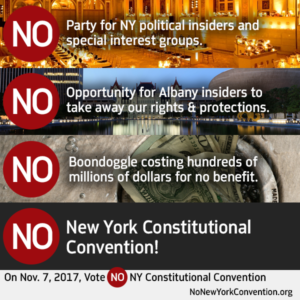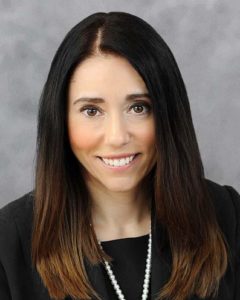The following letter was written by two Long Island teachers in response to comments about due process protections for teachers on the television show The View.
Dear Ms. Goldberg,
The subject of teacher tenure and teacher unions has recently been a recurring topic on your show, The View. We understand and appreciate that you are pro-teacher and pro-education, but believe that your perception of due process (aka “tenure”) is incorrect and are taking the liberty of writing you to correct any inaccuracies. Please bear with us in reading our letter, as we are public school teachers, granted due process under tenure, and are dealing with an attack on public education and due process within New York State, specifically, but also throughout our great country. Hopefully, some additional background in all of the facts on this topic will alleviate any further confusion.
In defending your comment, you stated, “It was not (good) teacher bashing; it was simply a statement that ‘bad’ teachers do not deserve tenure.”
In New York state, the granting of due process is contingent on three years of observations. These observations are conducted by several different qualified administrators and occur quite frequently throughout each of these three years. Administrators hold degrees and certifications granted by the state, which, in turn, authorizes them to make these observations along with suggestions, criticisms and praise. Often, administrators from varying levels, including building principals, district-wide directors, or district office members, such as a superintendent of schools, observe the non-tenured teacher. New teachers are guided through mentoring by experienced educators, with supporting documentation showing that this mentoring occurred reported to our State Education department. The new teachers are required to participate in special professional development, geared to increasing their efficacy. At any point in this three-year process, administration or the Board of Education may elect to remove the teacher from the classroom, thus ending his/her employment with the district; no questions are asked. At the end of three years, the district has three options: to recommend the teacher for tenure (pending Board of Education approval), deny the teacher tenure, thus ending employment, or grant the teacher a fourth year of untenured status where the observation process, coupled with mentoring and professional development continues. At the conclusion of this fourth-year, the district has the option for retention as a tenured educator or dismissal.
Tenured teachers continue to move forward in best assisting their students. As practitioners, we engage in peer lesson studies, participate in professional development, and continue to be observed in our classrooms. We are evaluated annually, and tenure, to correct Campbell Brown’s statement recently on Hardball, is definitely not “perfunctory.”
The use of the word “bad” in referencing teachers is nebulous. As your mother was a Head Start teacher, we are sure that you have heard that one student’s favorite teacher could be another student’s least favorite teacher. Teachers work hard to assist our students in achieving academic and social/emotional growth, but not all students immediately recognize the value in such endeavors. It may take years for a student to realize the investment made in his/her future by a particular teacher who s/he formerly classified as “bad.”
We feel that educators are not being judged based on the extraordinary lifetime successes of our students, evidenced through substantial social, emotional and academic growth. The media is rife with statements comparing often inaccurate percentages of “good” vs. “bad” teachers.
In New York state, through negotiated APPR (3012-c) parameters, teachers are evaluated through a confusing and flawed accountability system. The determination of a New York educator’s success or failure is reliant on so-called “high-stakes” testing, coupled with the misguided and detrimental implementation of Common Core State Standards. Please understand that we fully agree that evaluations are important in that they keep a running dialogue open between teacher and administrator on job success or lack thereof. However, these valuable assessments are negated because public education is now the cash cow for corporate interests.
The tenure system facilitates teacher voice in support of students, innovations in our classrooms, creativity and collaboration between educators and our educational communities. You stated that your view of tenure pertained only to “bad” teachers. You are suggesting over-hauling tenure, yet you offer no alternative to protect the “good” teachers you praised.
It is unfair that educators who teach in low-income districts are recipients of the brunt of this attack. While teachers in low-income districts combat the following daily, please understand that these issues occur in many other public schools, as well:
Poverty. Certainly, no one asks to be poor. As you know, some students have parents who work incredibly hard for menial wages. Some families are so poor that their children are forced to work countless hours each week after school to pay family bills. Hunger may accompany poverty. Some children are extremely tired from working full-time jobs after school and may only come to school to eat. Thankfully, the school provides them with breakfast and lunch. These children may become irritable on Fridays because they are unsure as to how or where they will eat over the weekend. If a child is suffering from neglect, many other issues arise, such as a lack of proper dental, vision and health care. Other students suffer abuse. School represents a safe refuge for several hours each day.
Still other students struggle because they are English Language Learners, and may also be illiterate in their native languages; learning English is an arduous task for them, especially as more and more services are cut from schools. Some of these children are also Special Needs Students; in addition to having language hurdles to cross, they have learning barriers to address. Nowadays, more and more Special Education services are being taken away from students because they are too costly to the district. The teacher may well be the voice in articulating why a student requires special services.
Many teachers purchase additional, nutritious food, to be stored and provided to students who are hungry. Many teachers buy holiday and graduation gifts for needy students, so the return home on the Friday before vacation becomes a little more bearable. Teachers build bonds with all students, regardless of academic success. This bond may be so strong that the student will sometimes confide in the teacher about abuses at home (abuse which the teacher then reports to Child Protective Services).
In New York, teachers are mandated reporters, and as such are duly obligated to report incidents and questions of child abuse. The protection of our students is vital; without due process, there could be potential for fewer questions by our educators, who would fear repercussion in the protection of their students.
These are just some of the issues we deal with every single day. We may also deal with Anorexia, Bulimia, cutting, depression, suicidal students, homicidal students, gambling addiction and a plethora of mental health, physical health, hygiene and family issues.
Due process rights are important because they allow us to stand up for our students, through giving voice in supporting and protecting them. With due process, teachers can stand up for the student who we think may be unfairly suspended, especially when a parent is not available to defend the child. We can fight against rescinding support services of a special needs child because those services are too costly. Many times, parents may not be able attend their child’s CSE/IEP meeting. The only one in the room advocating for that child may well be the teacher.
Without tenure, we could not stand up against the injustices we witness against children by districts that may temporarily have forgotten our reason for being here – our students and educational community. Without tenure, we could not stand up to our administrators/supervisors when something is wrong. Without tenure we could not stand up against harassment and workplace bullying. Without tenure, we could not stand up against racism, sexism, homophobia, bigotry and age discrimination. These days, many veteran teachers are no longer being viewed based on their outstanding contributions to our educational communities; instead they are more frequently being categorized based on their position on the pay scale. Without tenure, age-discrimination will become a pandemic in schools.
Without tenure, the wonderful academic success stories and teacher innovations promoted in our educational communities are likely to dwindle because teachers will be afraid to defend their high student expectations to administration. Without tenure, academic freedom and creativity in the classroom will disappear. Without tenure, people will be afraid to defend social justice or advise the Gay-Straight Alliance Club at school, for fear of reprisal from a homophobic supervisor. Without tenure, teachers will be afraid to “tweet” and participate in political rallies (including those rallies where communities come together in the fight for better educational legislation and ending over-testing of students). Without tenure, teachers will be afraid to join a political party for fear of retaliation over their political ideologies. Without tenure, teachers will become afraid to be so-called “whistle-blowers” against a school district’s failure to comply with Special Education regulations. Without tenure, teachers will be afraid they may suffer for what their friends or family do. Without tenure, teachers will be afraid to refuse to change a grade or falsify attendance records and/or legal documents, if directed by an administrator.
Tenure does not equate to “a job for life.” Tenure equates to due process rights, which requires the district to do its due diligence in removing a teacher from the classroom and prevents that reason from being arbitrary and capricious. As far as the union goes, it is not the union’s responsibility to “defend bad teachers”; rather, it is to ensure that the district has done everything it needs to do on its part and that corruption/abuse has not taken place during a due process hearing. (Note: To clarify another misconception being promoted by some, New York’s teacher tenure law has been streamlined to address lengthy due process hearings and cost associated therewith.)
In a courtroom, people often misunderstand the defense attorney’s role. Too often, they think it is to “get a criminal out of charges,” but that is untrue. The attorney’s real purpose is to ensure that the government (such as a school district, acting as a municipality) has used proper fact-finding to confirm that allegations were proven credible. The hearing proves that the district has not been fraudulent in its accusations, or that the charges contain falsified evidence. It is the defense attorney’s job (like a union) to place the burden of proof on the accuser (comparable to placing the burden of proof on the district). If the district attorney in a court of law (or the school district in a due process hearing) cannot prove beyond a reasonable doubt that the charges are true, the defendant is released (or the teacher reinstated). In contrast, should that D.A. (or school district in a due process hearing) be able prove the charges, the defendant in a trial is deemed “guilty,” which, in “schoolspeak” would equate to the teacher losing his/her position. This is the essence of due process (tenure). Tenured teachers are not guaranteed a job for life.
At a July Las Vegas charter schools convention, Campbell Brown recently stated, “We are in a war, not a fight,” and went on to say that “This is simply right versus wrong.” (http://www.huffingtonpost.com/2014/08/04/robert-gibbs-teachers-unions_n_5649426.html?1407195980) While she may feel that we are at “war” in the attack on public education, we are telling you that we are the practitioners, the professionals, who believe in public education, which promotes social mobility, confidence and our country’s success. We stand by our union, Ms. Goldberg, which protects all of Middle America’s working families. We do agree with Brown on one thing – she is correct in that this boils down to right versus wrong. However, in this “war,” Brown clearly stands on the wrong side.
We hope that you join us in the support of public education and teachers’ rights to due process.
Respectfully,
Alicia Connelly-Foster
HS VP- Patchogue-Medford Congress of Teachers, NYSUT, AFT, NEA
Viri Pettersen
President- Rockville Centre Teachers Association, NYSUT, AFT, NEAp.s.: Should you want to read more on the topic, here are some additional references:
On the tenure hearing process: http://www.highered.nysed.gov/tcert/ospra/memo04042012.html
On the average teacher tenure hearing:
http://chaz11.blogspot.com/2014/08/how-long-does-it-take-for-3020-hearing.htmlOn NYSED online teacher tenure case management system:
http://www.highered.nysed.gov/tcert/resteachers/memo03042013.htmlOn NYSED re teacher tenure hearings (3020a):
http://www.highered.nysed.gov/tcert/resteachers/lawregs.htmlStudy – “Children’s life trajectories largely determined by family they are born into”:
http://hub.jhu.edu/2014/06/02/karl-alexander-long-shadow-research#









Comments are closed.